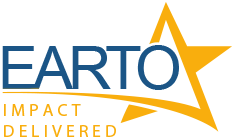
OECD-EARTO Joint Project on the Funding of Research & Technology Organisations (RTOs): New challenges and opportunities for supporting socio-economic recovery, resilience and transitions
Background:
RTOs are key actors in national science, technology and innovation (STI) systems but still a statistical and substantive “blind spot”. The role of RTOs in delivering knowledge and innovation that contribute to both strengthening competitiveness and solving mounting societal challenges is widely acknowledged. However, there is little insights on how these organisations function in practice, what is their funding and delivery model, their role(s) and position in national and international STI systems and, especially, how these have evolved in line with changes in the funding and governance landscape in recent years.
This lack of knowledge on RTOs is largely due to their diversity in terms of legal status, internal governance structure and modes of funding (OECD, 2011). RTOs’ hybrid nature compounds this diversity: most of them serve different missions for various public and private beneficiaries and partners, financed through multiple funding streams. Consequently, RTOs are difficult to handle as one consistent category in statistics and analytical work.
Objectives:
In this context, the study commissioned by EARTO to OECD at the beginning of the year 2021 aims to collect and analyse information on the evolution of the funding, governance and policy context of RTOs, and the implications (opportunities/constraints) of these changes on their ability to achieve their mission.
The core questions that structure the whole study are therefore the following:
- How the changes in RTOs’ funding and overall (internal and external) context in the last 5 to 10 years have impacted on their ability to deliver on their missions?
- How these missions themselves have evolved over the past 5/10 years, for instance in the face of the growing call to contribute to solving mounting societal challenges and supporting sustainable transitions?
- How do RTOs foresee that their role and missions will evolve in the next 5 years, and how they envisage future trends and get organised to adapt and seize related opportunities?
The result of this study will feed into the strategies and practices of RTOs and their funders, ‘principals’ and partners, regarding the adequacy of current and future RTOs’ funding and delivery models to best contribute to the transitions toward more sustainable and resilient socio-economic systems.
Scope & Methodology
The investigations will be carried out primarily among EARTO members (European and International RTOs), regardless of their legal status (publicly or privately-owned), size, and location. On an opportunistic basis, some RTOs that are not EARTO members could also be included, in particular as recipients of the survey questionnaire and data collection template.
The period considered in the study goes as far as the last 15 years in order to include the 2008 financial and Covid-19 crises.
The two main tools to collect meaningful information from RTOs for this study are an online survey and a data collection template. These will be complemented by interviews of selected RTOs, which will provide some context to better understand the survey results and data collected.
A joint OECD-EARTO Workshop on “the Role of RTOs in supporting the Sustainable Transitions” has also been organised to gather input in the frame of this study and was held digitally on 19 November (see
agenda and
presentation). The report of the workshop will be published shorty.
Results & deliverables:
The information and data collected via the online survey, the data collection process, the interviews and the workshop will feed into the making of a report to be published by the OECD early 2022.
——————————————-
Read the
full Study’s Terms of References
For more information about the study, please do not hesitate to contact Sophie Viscido (
viscido@earto.eu) and Philippe Larrue (
philippe.larrue@oecd.org).


